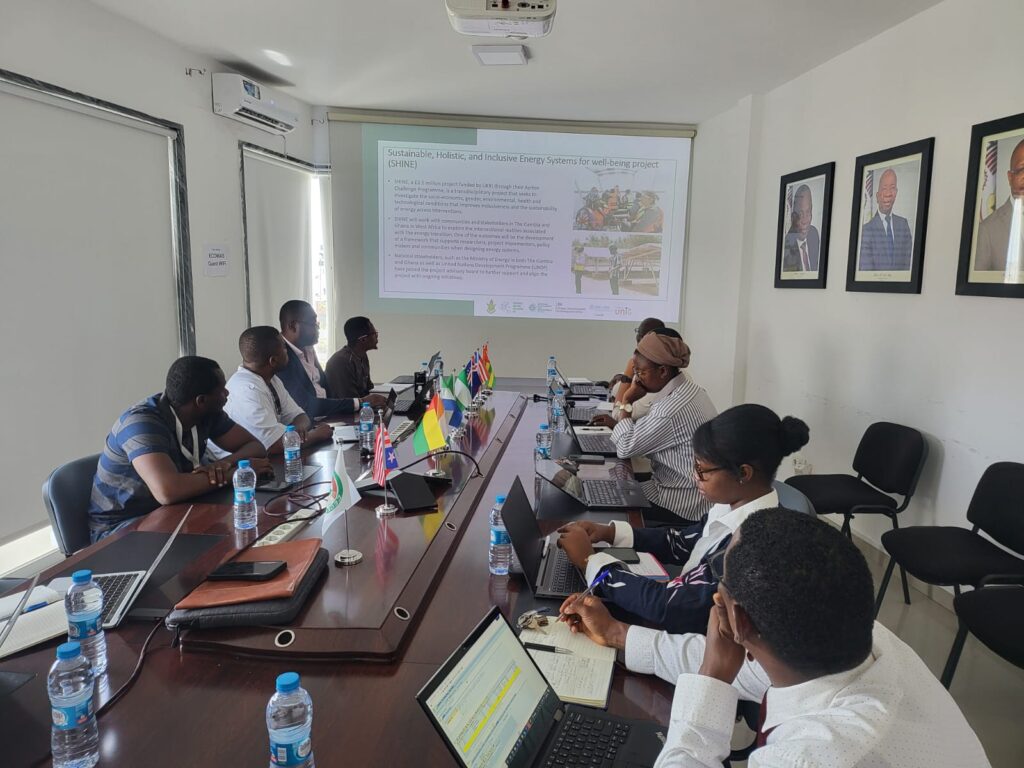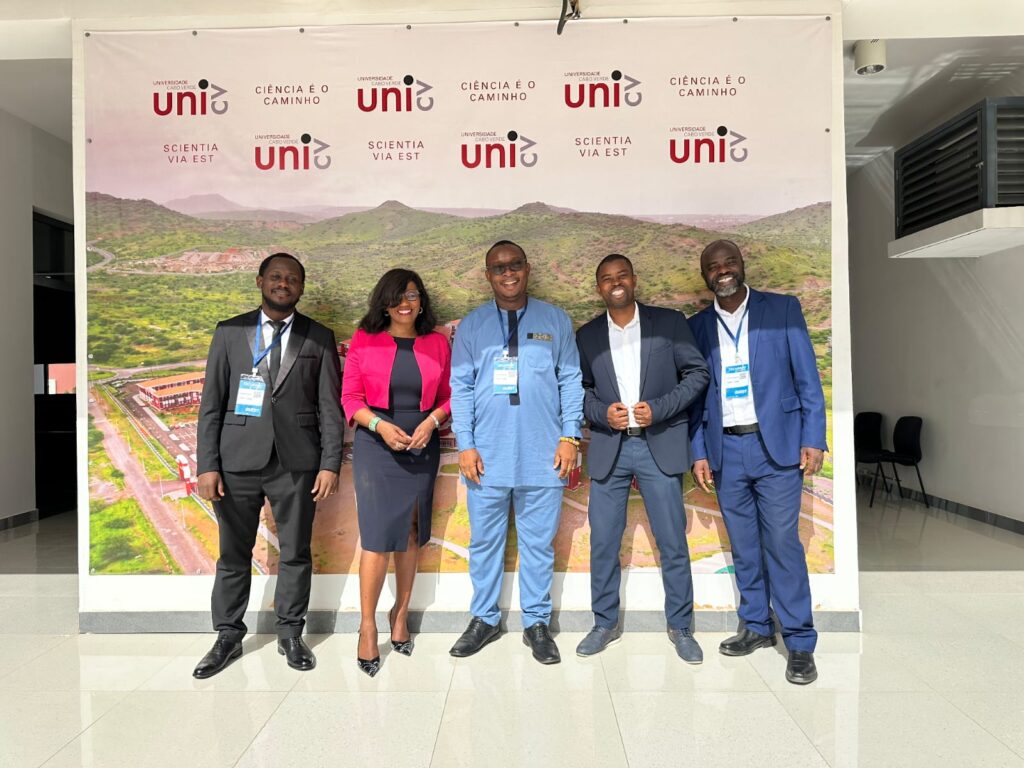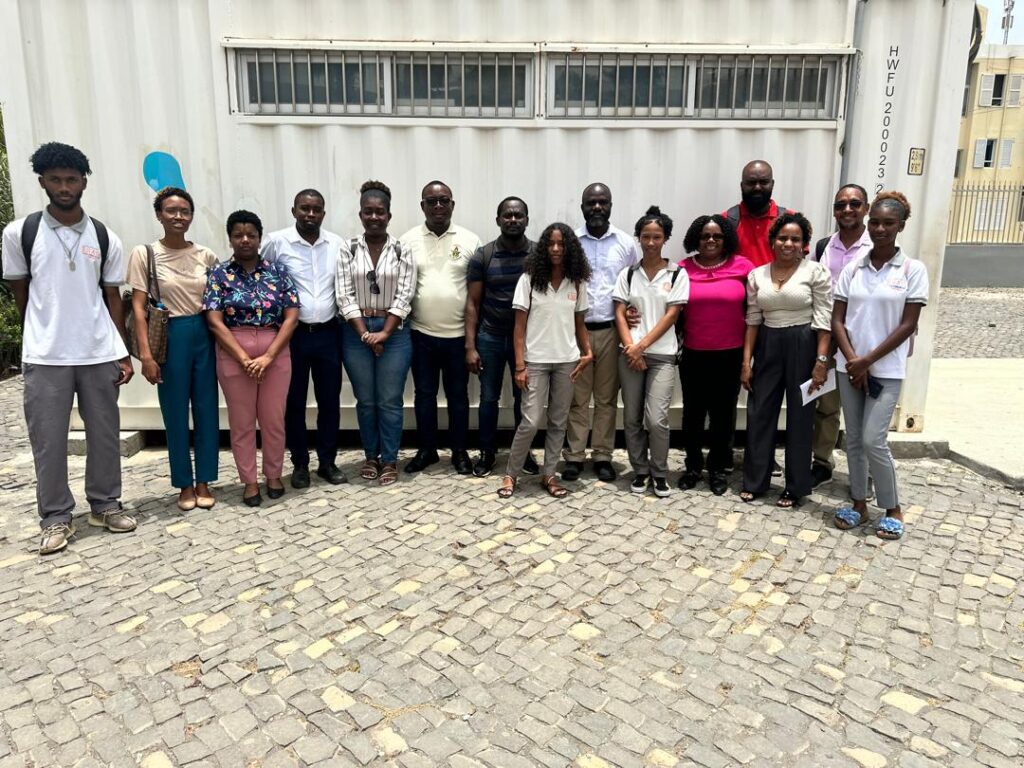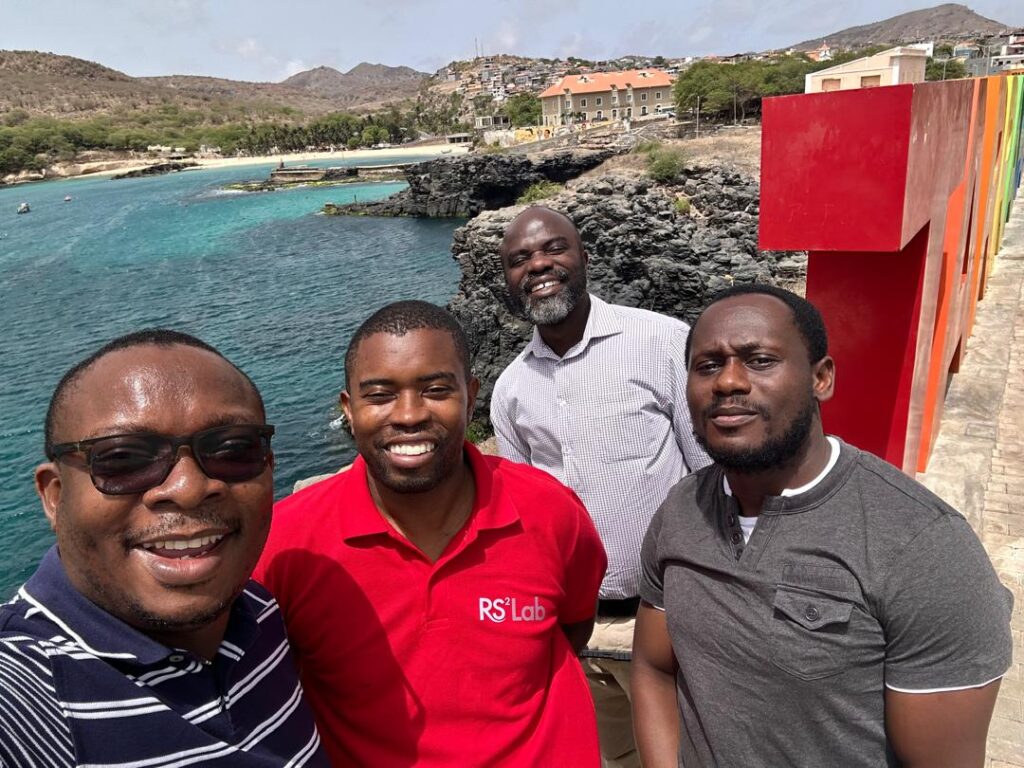The RAIL Satellite Lab at the University of Cape Verde (Uni-CV), led by Dr. Arlindo Veiga, hosted a delegation from the Responsible AI Lab (RAIL) at Kwame Nkrumah University of Science and Technology (KNUST), Ghana, from 3rd to 9th May 2025. The visiting team included Prof. Francis Kemausuor, Dr. Andrew Selasi Agbemenu, and Dr. Kwame Oteng Gyasi.
The visit marked a significant step in fostering collaboration in AI research and innovation, with discussions on joint projects, academic exchange, and institutional partnerships.

The delegation met with Professor Maria dos Anjos, President of the Faculty of Science and Technology and the School of Agricultural and Environmental Sciences, as well as the Rectoral team led by Professor Jorge Tavares (Vice-Rector, representing the Rector, Professor José Arlindo Barreto).
Key activities included:
- A visit to ECREEE (ECOWAS Centre for Renewable Energy and Energy Efficiency) and a meeting with the CEO of Tech Park.
- A tour of Uni-CV, featuring a presentation on the RS2Lab (Responsible and Intelligent Solutions Lab).
- A cultural tour across Santiago Island, showcasing Cape Verde’s rich heritage.
- A session at Abílio Durate Secondary School, where the team engaged with the students, inspiring young minds in STEM.

Professor Francis Kemausuor, Dean of the Faculty of Mechanical and Chemical Engineering and the Energy Theme Lead of RAIL, presented RAIL’s projects, which include AI-based solutions for smart agriculture, sustainable energy, and initiatives such as the RAIL Robotics Club and “SheCodes” program aimed at promoting women’s participation in technology.
Dr. Arlindo Veiga, RAIL Satellite Lab Lead at Uni-CV, highlighted the significant advances of the partnership, particularly in the scope of the RS2 laboratory, emphasising the mutual benefits and joint funding for doctoral students. Professor Celestino Barros highlighted the institutional commitment to technological innovation, referring to the courses available at Uni-CV, such as Computer Engineering and Cybersecurity.

The possibility of expanding cooperation to other fields, including the Arts and Humanities, with innovative applications of AI in language teaching was also discussed. Despite the linguistic challenges identified, both institutions demonstrated a strong interest in maintaining and expanding this strategic cooperation.
